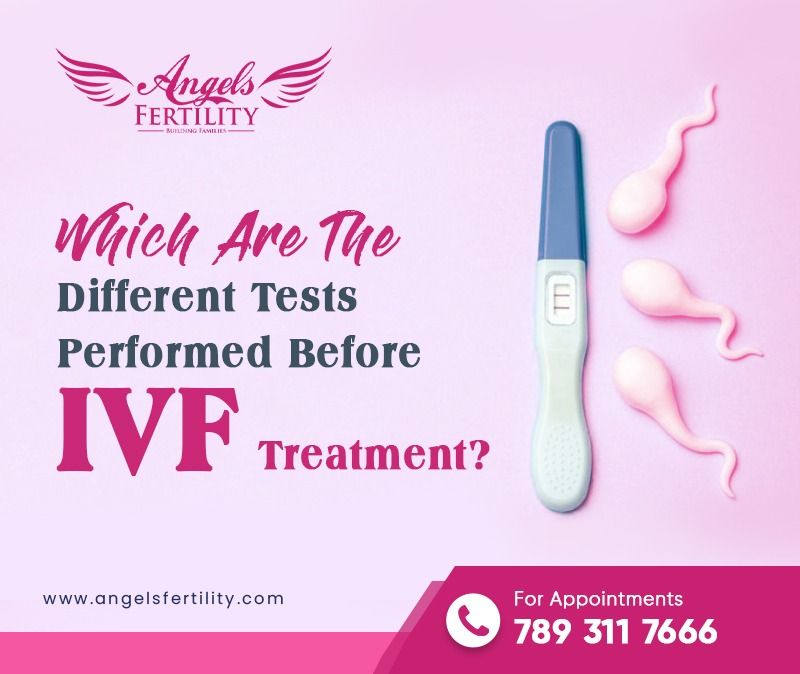IVF is one of the most popular infertility treatments used for helping couples who are striving to have a baby. When you visit a fertility center for IVF, they will conduct several tests to determine the reason for infertility, and how to address your issue. This helps fertility specialists to determine the right treatment based on your condition.
If you decide on IVF, it is important to be aware of the different tests conducted before proceeding with IVF treatment.
Different Tests Performed Before IVF
IVF tests are conducted after a detailed consultation with your doctor. During the consultation, the doctor considers your medical history, explains the possible options and how to proceed.
The following different tests are conducted before an IVF treatment:
- Tubal patency test: It is also known as HSG (Hysterosalpingography) test. This test is used to look for things that cannot be seen using X-ray, or ultrasound. In this procedure, a contrast agent is sent into the fallopian tube through the uterus. This helps to know if the fallopian tube is blocked and also to know the condition of uterus.
- Ovarian reserve testing: It is a blood hormone test that helps the doctor to know the ovarian reserve and the total eggs present in the woman’s womb. This test mainly looks for the hormones such as FSH, AMH, and estradiol. These hormones help to know the number of eggs, the uterus lining and the fallopian tube.
- Semen evaluation: For semen evaluation, a sample of sperm will be collected and is sent to a lab for testing. Semen test helps to know the shape, motility, count and concentration of the sperm. If the doctor determines that the male partner is infertile, then ICSI might be suggested. ICSI involves inserting sperm into the egg and it is an advanced technology.
- Tests for infectious diseases: Before proceeding with IVF, the doctor will conduct tests to look for infectious diseases such as HIV, Chlamydia, Rubella, etc. This is because the diseases can affect the growth of the fetus and can also lead to complications in the future.
- Prolactin and thyroid hormones test: Prolactin hormone is the main hormone for producing breast milk and high amounts of this hormone can affect pregnancy. Thyroid hormones are helpful for various metabolic activities. Higher or lower levels of thyroid hormone can also affect pregnancy. This test helps the doctor to decide on the right drugs to correct the hormone levels.
- Mock embryo transfer: It is an optional test used for knowing if the embryo transfer has any chances of pregnancy. This test helps the doctor to know the behaviour of the uterus during the procedure. Accordingly, the doctor will customize the actual procedure by taking proper measures.
The above-mentioned tests are the important tests conducted to know if IVF is the best treatment option for you. You should discuss with your doctor about the tests that need to be conducted before the IVF procedure. All these tests help only to make sure that there are chances of conceiving with IVF treatment.
Want to Know More about IVF? Visit Angels Fertility Today
If you and your partner have decided to undergo IVF treatment, but do not know the exact process to proceed, visit Angels fertility today. We are very patient and will listen to your concerns before deciding on the treatment. We are dedicated to giving evidence-based fertility treatment with more focus on the biological child. We closely work with you to develop a personalized fertility treatment for you. To schedule your consultation, call us today.

